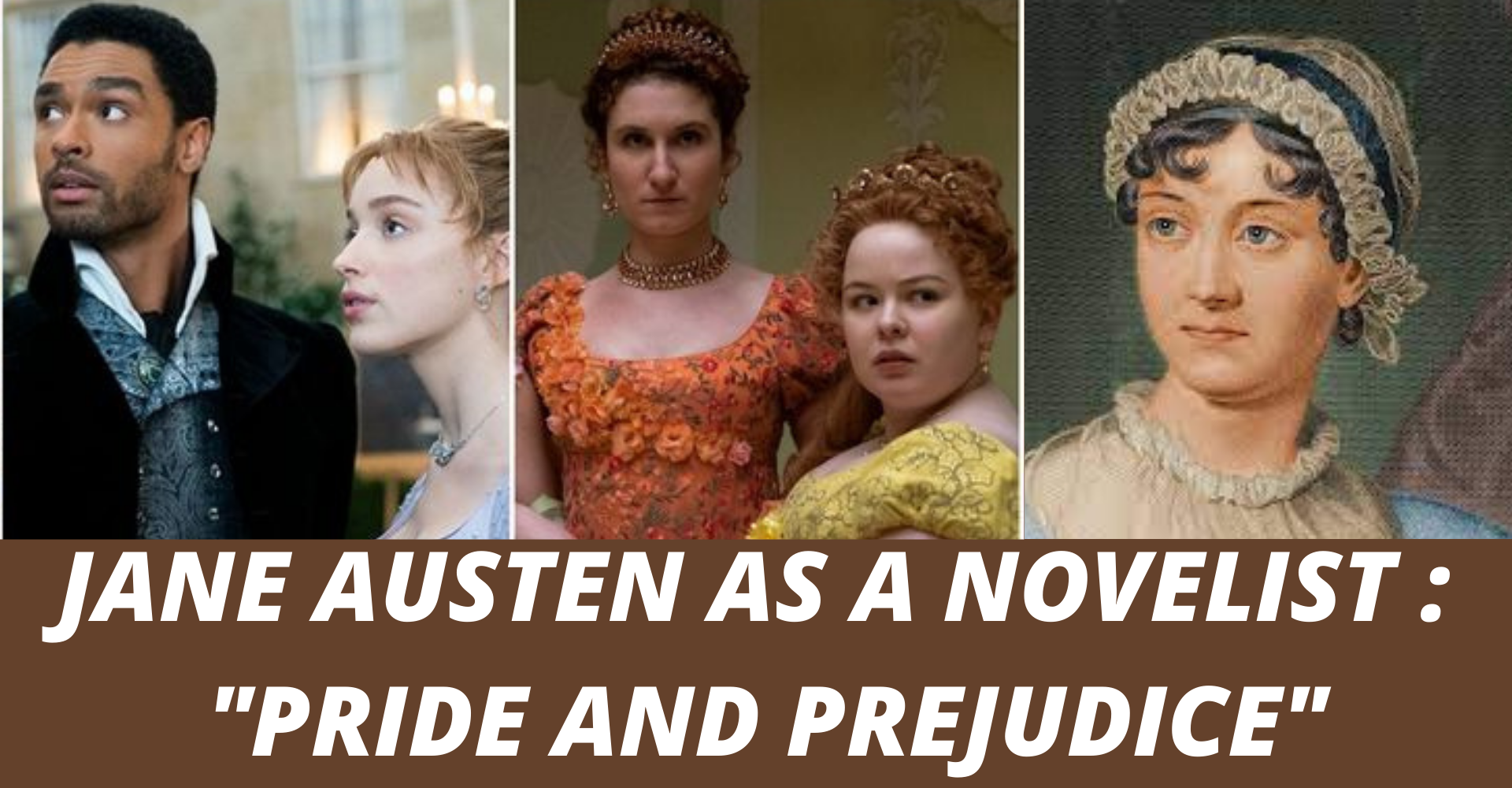Among the women novelists Jane Austen is unparalleled and within her limit range of subjects she is as great as Shakespeare. The characteristics quality of Jane Austen as a novelist are her faithful observations, personal detachment and a fine sense of ironic comedy. The novel of Jane Austen marked a big step forward in the fortunes of the English novel. She is recognised as one of the greatest novelists in domestic fiction. She is a serious artist and conscious writer, absorbed in her art, wrestling with its problems, casting and recasting her material.
The novels of Jane Austen deals almost wholly with a restricted circle of home life. The atmosphere is one of the provincial colon with the very limited outlook where the extreme of wealth and property are unknown reader finds themselves in a small world of country gentry. Clergyman concerning church and middle class people were social intercourse is smooth and simple. Her realism is more truly psychological then that of Richardson. And no wonder, her realism is free from the tragic obsession of moral consciousness. There is an extraordinary truth in her presentation of the pictures of reality. Each of her novels depicts a group of human beings, their relations with one another, their clashes and affinities, their mutual influences and their conversations. The range of her novels was limited. She drew all her marital from her own experiences. She never went outride of her experiences and consequently all the scener described in her novels belongs to Sound England where she had her frontiers and she never went beyond them.
Interestingly, there limitations were self-imposed she always remained within the range of her imaginative inspiration and personal experience. She recognised in herself no general aptitude for general ideas and no impulse in the direction of social or political problems. She absolutely possessed her simple world and abundantly loved it with certain ironic reservations that give savan to her observations. Her interest in human nature was her only discoverable asset, two or three families in a village are the subjects which one can find almost all her novels. Moral or philosophical reflections, elaborated descriptions erratic complications are net the cup of her tea rather she completely cuts herself from the world of affair and the wonder is she contrives to write books which are neither starved nor unnatural and which are empathetically of the age that produced them. She possessed her simple worked and loved it with certain ironic reservations that gives self and savour to her observations. The French Revolution and the Napoleonic wars didn’t stir her feelings and emotions as it a woke the youthful passions of Wordsworth, Coleridge and Scott. She was not the dreamer of dreams but was interested in music making. She concentrated her personal relationship and expressed in terms of love, courtship and marriage against the background of the peaceful countryside.
Jane Austen was a careful craftsman on two inches of ivory. Once she wrote to her nephew, “what should I do with your strong manly vigorous sketches full of Variety and glow. How could I possibly join them on the little bit of ivory two inches long”. Jane Austen knew her limitations not only of her world but of her powers. She had no gifts for poetry, no sense of mystery, no knowledge of the heights and depths of passions. Her stories are all drawn from the life that she knew.
In “Sense And Sensibility” Austen directs her attack against the sensibility and sentimentality. Elinor represents sense and help sister Marianne stands for sensibility. She ridicules the selfishness and worldly wisdom of Mrs John Dashwood and the henpecked nature of John Dashwood. In “Pride And Prejudice” one finds the exhibitions of pride and prejudice and their ultimate union at the end. The bouts of wit between Darcy (who has pried) and Elizabeth (who keeps prejudice), the sallies of Mrs. Bennett against his wife, the stupidity and sycophancy of Mr. Collins have been brilliantly shown. The novel concludes with a silver laughter. The pride is humble and prejudice is conquered. Mansfield Park (1814) is a study of the inhabitants of the House of Mansfield Park, the country place of Sir Thomas Bertram Brat. The central character of this novel is Fanny Price, who represents to a considerable degree the values held dear by Jane Austen. ‘Emma’ is considered the masterpiece work of Jane Austen. The subject of ‘Emma’ is marriage. Marriage in ‘Emma’ thought in terms of actual and particular personal relationship. ‘Persuasion’ is the last work of Jane Austen. Satire and ridicule take a milder form in this novel. In this novel, the central idea is the uncertainty of all human events and calculations.
Unquestionably, Jane Austen in her novels works within her strict limitations. Critics complained that she wrote very much the same sort of story in her novels and there is no great variety in her characters. Her novels lack passion and the language of emotion is usually forced and conventional. She depicted only the country-gentry and that too is not portrayed in all its aspect. In most of her novels she omits to consider the lower classes especially the servants and the poor are mentioned only by name. Only the artistic class is introduced. In her novel we do not have any deep spiritual in right nor any theological speculation. But the wonder is that with all her limited and restricted world and characters have been portrayed with artistic perfection. She is the sincerest examples in English literature of art for art sake. She knew two things, the one was humanity and the other was art. But in spite of her limited range she made a mark as a great novelist and her novel read with much interest.
PLEASE HELP ME TO REACH 1000 SUBSCRIBER ON MY COOKING YT CHANNEL (CLICK HERE)











